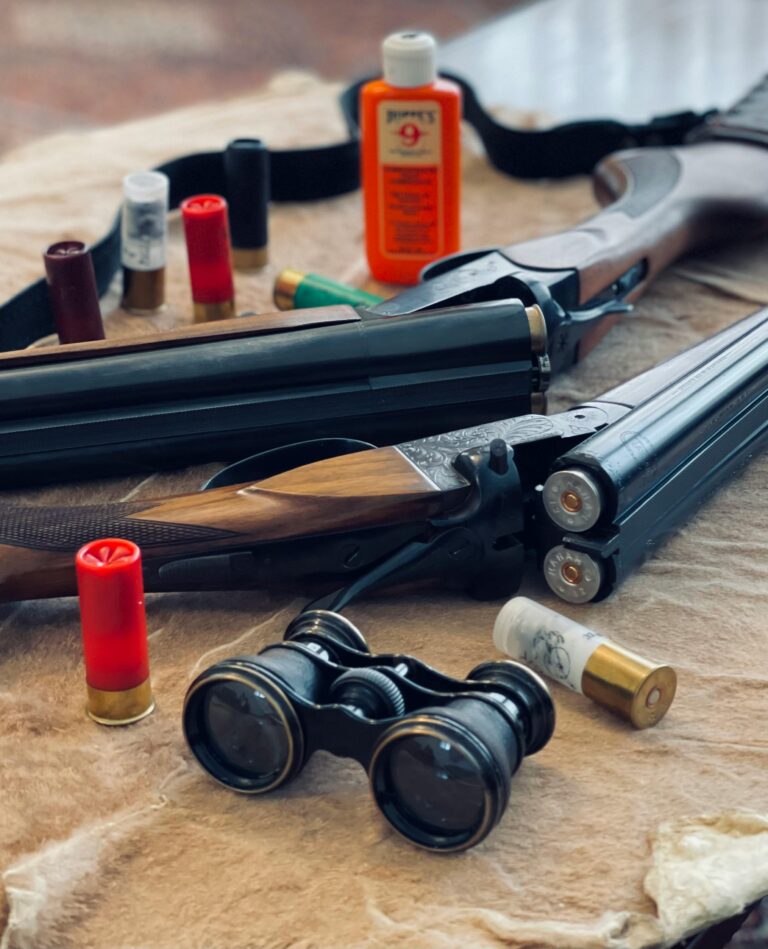Firearm maintenance is a critical responsibility for every gun owner. Proper care ensures that your firearm remains safe, reliable, and functional over time. In this article, we provide a detailed guide on the best practices to maintain your firearm effectively. These tips will help extend the life of your gun, prevent malfunctions, and ensure optimal performance whenever you need it.
Table of Contents
- Clean Your Firearm Regularly
- Inspect Parts for Wear and Tear
- Use Proper Lubrication
- Store Firearms Safely
- Invest in Quality Cleaning Supplies
- Check for Rust and Corrosion
- Test Your Firearm Periodically
- Keep a Maintenance Log
- Replace Worn Parts
- Seek Professional Help
1. Clean Your Firearm Regularly
Maintaining a clean firearm ensures its reliability and safety. After each use, clean the barrel and other components to remove dirt, residue, and carbon buildup. Using the right tools, such as cleaning rods, patches, and brushes, can make the process more effective. Neglecting regular cleaning can result in malfunctions, reduced accuracy, and a shorter lifespan for your firearm.
2. Inspect Parts for Wear and Tear
Regularly inspect parts such as the barrel, slide, and trigger for wear or damage. Check for cracks, loose screws, or unusual wear patterns. Early detection of issues prevents malfunctions during use. It is especially important to inspect springs and pins, as they are prone to wear over time.
3. Use Proper Lubrication
Apply appropriate lubricants to moving parts to reduce friction and prevent corrosion. Over-lubrication can attract dirt and debris, while under-lubrication leads to excessive wear. Firearm-specific lubricants are designed to handle the high pressures and temperatures experienced during firing. Always follow the manufacturer’s recommendations for lubrication points and amounts.
4. Store Firearms Safely
Store firearms in a dry, secure environment. Use safes or cabinets with dehumidifiers to protect against moisture and unauthorized access. Proper storage not only preserves the condition of your firearm but also ensures it is safe from accidental handling or theft. Consider using silicone-treated gun socks for added protection.
5. Invest in Quality Cleaning Supplies
High-quality brushes, patches, and solvents are essential for thorough cleaning. Avoid using household cleaning products that may damage your firearm. A universal cleaning kit is a great investment, as it includes all the tools needed for different firearm types. Always read the instructions on cleaning products to ensure safe and effective use.
6. Check for Rust and Corrosion
Inspect your firearm for signs of rust or corrosion, particularly if it has been exposed to moisture. Use anti-corrosion solutions and wipes to protect your firearm’s surface. Regular inspections can prevent irreversible damage and ensure that your firearm remains in peak condition.
7. Test Your Firearm Periodically
Visit a shooting range to test your firearm. Regular testing ensures all components are functioning as expected. This also gives you an opportunity to verify the accuracy of your sights and identify any potential issues before they become critical.
8. Keep a Maintenance Log
Record every cleaning and repair session in a maintenance log. A detailed log helps you track the firearm’s condition and anticipate necessary maintenance. Include details such as dates, parts replaced, and the products used. This is particularly useful for ensuring compliance with warranty terms.
9. Replace Worn Parts
Replace any worn or damaged parts promptly. Using compromised components can lead to safety risks and operational failures. Commonly replaced parts include springs, extractors, and firing pins. Always use manufacturer-approved parts for replacements.
10. Seek Professional Help
For complex issues, consult a certified gunsmith. Professional maintenance ensures your firearm remains in top condition. Gunsmiths can also perform advanced upgrades and modifications to enhance your firearm’s performance and reliability.
FAQs
- Q: How often should I clean my firearm?
A: Clean your firearm after every use or at least once a month if stored. - Q: What lubricant should I use?
A: Use firearm-specific lubricants to ensure optimal performance and protection. - Q: Can I use household cleaners for my firearm?
A: No, household cleaners can damage the firearm. Always use products designed for firearm cleaning. - Q: How do I protect my firearm from rust?
A: Store it in a controlled environment and apply anti-rust solutions regularly. - Q: When should I seek professional help?
A: If you notice major malfunctions or need complex repairs, consult a certified gunsmith.
11. Educate Yourself on Firearm Safety
Knowledge is an essential aspect of firearm ownership. Take the time to educate yourself about proper safety protocols, local laws, and advanced maintenance techniques. Resources such as training courses or firearm owner manuals provide invaluable insights that enhance your skills and ensure your firearm is handled responsibly.
12. Protect Your Firearm During Transport
When transporting your firearm, always use a secure case to prevent damage and ensure safety. Cases with padded interiors protect against physical impacts, while lockable designs ensure the firearm remains inaccessible to unauthorized individuals. Additionally, follow local laws regarding firearm transportation to remain compliant and avoid legal issues.
13. Invest in Regular Training
Maintaining your firearm is only part of responsible ownership. Regular training not only improves your skills but also helps you understand how wear and tear affect your firearm’s performance. Professional courses or practice at a shooting range can provide valuable feedback on handling and maintaining your weapon.
14. Consider Seasonal Maintenance
Environmental factors such as humidity and temperature shifts can impact your firearm. Seasonal maintenance involves inspecting and preparing your firearm for specific conditions, such as applying anti-corrosion coatings during wet seasons or ensuring proper lubrication in extreme temperatures. This proactive approach ensures reliability year-round.

